Sustainability - the next best way to nurture customer loyalty? Throughout this article, we'll dive deep into the relationship between sustainability and customer loyalty, exploring how sustainable practices can enhance your brand purpose and drive customer retention.
I’ll also share practical strategies for integrating sustainability into your loyalty programmes, from rewarding eco-friendly choices to amplifying your sustainability efforts through engaging customer experiences.
By the end, you'll have a clear understanding of why sustainability is a key driver of customer loyalty in today's market and how you can leverage purpose-driven marketing to build lasting, profitable customer relationships.
Contents:
Key Takeaways
The Relationship Between Sustainability and Customer Loyalty
The Benefits of Embracing Sustainability for Businesses
5 Ways Brands Can Incorporate Sustainability and Build Customer loyalty
Challenges of Sustainability
Strategies for Changing Customers' Minds and Behaviours
Examples of Brands Operating Sustainable Loyalty Programme
FAQs
See where sustainability ranks in loyalty priorities in our Loyalty Uncovered 2025 Report:
Key Takeaways
-
Sustainability and customer loyalty are closely linked, with consumers increasingly seeking out brands that align with their values and demonstrate a genuine commitment to eco-friendly practices.
-
Embracing sustainability can enhance brand purpose, improve customer lifetime value, attract new customers, and reduce environmental impact.
-
Sustainable loyalty programmes & eco-friendly rewards, green deliveries, pick up points, sustainability training can all have a positive impact on on customer loyalty and can drive customer retention and advocacy.
-
Overcoming challenges such as concerns about product quality, greenwashing, and balancing sustainability goals with business objectives is crucial for building trust and credibility with customers.
-
Educating customers, leveraging brand purpose, creating engaging experiences, and harnessing purpose-driven marketing are effective strategies for changing customers' minds and behaviours around sustainability.
The Relationship Between Sustainability and Customer Loyalty
In today's world, sustainability and customer loyalty go hand in hand. As consumers become increasingly conscious of the environmental and social impact of their purchases, they're seeking out brands that align with their values and demonstrate a genuine commitment to eco-friendly practices.
78% of consumers feel that sustainability is important.
This shift in consumer behaviour presents a huge opportunity for businesses to differentiate themselves. Brands can tap into the growing demand for sustainable products, services and building lasting customer relationships by embracing sustainable practices; from eco-friendly product design to responsible supply chain management.
Putting sustainability at the heart of your strategy and creating meaningful, eco-friendly customer experiences, builds stronger, more resilient relationships and a sense of shared purpose that inspires long term brand advocacy.
Back to Contents
The Benefits of Embracing Sustainability for Businesses
The most important thing about sustainability is about doing the right thing for the environment and being socially and economically responsible. However, by-products of implementing sustainable practices can include increased business growth, stronger customer relationships, and the ability to differentiate your brand in increasingly competitive markets.
Enhancing brand purpose and commitment to social responsibility
One of the biggest advantages of implementing sustainable practices is the opportunity to enhance your brand purpose and demonstrate your commitment to the environment and wider social (including fair labour practices) and economic responsibility. Aligning your business practices with these components sends a powerful message to your customers, employees, and stakeholders about what your brand stands for.
And that matters more than ever in today's market. As we’ve already seen, consumers are increasingly looking for brands that share their values of making a positive impact on the world. By embracing sustainability, you're tapping into that desire for purpose-driven brands.
Improving customer lifetime value through sustainable practices
But the benefits of sustainability go beyond just brand perception – they can also have a tangible impact on your bottom line. Sustainable practices throughout your supply chain and operations actually improve customer lifetime value and drive long term growth.
Think about it – when customers see that you're committed to reducing your environmental impact and promoting sustainability goals, they're more likely to trust your brand and feel good about purchasing from you. That kind of emotional connection is key to building loyalty and driving repeat purchases over time.
Attracting new customers in the eco-conscious consumer market
As more and more consumers prioritise eco-friendly products and sustainable business practices, you’ll be in a position that wins their wallet’s vote.
Demonstrating a commitment to sustainability attracts environmentally conscious consumers who are actively seeking out brands that align with their values. And by offering sustainable products and experiences, you can create a unique value proposition that sets you apart.
Reducing environmental impact and promoting sustainability goals
Perhaps the most important benefit of embracing sustainability is the opportunity to make a real difference to the world. You’re not just benefitting your own business by reducing your environmental impact. You’re also contributing to a broader movement towards a more sustainable, secure future.
Whether it's through implementing eco-friendly packaging, reducing carbon emissions in your supply chain, or partnering with environmental organisations, there are countless ways to make a positive impact. And by setting ambitious sustainability goals and reporting on your progress, you can even inspire other businesses to follow in your footsteps and drive meaningful change at scale.
Back to Contents
5 Ways Brands Can Incorporate Sustainability and Build Customer Loyalty
So how can we brands increase customer loyalty through sustainability? It’s not just about jumping on the eco-friendly bandwagon – it's about creating hyper-relevant and emotionally engaging experiences that resonate with your customers’ values and keep them coming back for more.
1) Differentiate your loyalty programme rewards with sustainable incentives
That's where a sustainability-focused loyalty programme can be a real differentiator. By rewarding customers for eco-friendly behaviours and purchases, you're not just incentivising sustainable choices – you're also creating a unique value proposition that sets you apart from competitors.
Some more examples could include offering bonus points for returning reusable packaging or discounts on your most sustainable products. Maybe it's partnering with eco-friendly brands to create exclusive rewards for your members. The possibilities are endless – and the payoff can be huge.
.webp?width=1573&height=749&name=SustainableLoyaltyProgramme%20(1).webp)
Etihad Guest
Because at the end of the day, sustainability isn't just a trend or a tactic. Climate change affects us all. For that simple fact alone, we should see a fundamental shift in how we do business and how we engage with our customers.
And the brands that get it right – the ones that create authentic, emotionally resonant experiences that align with their customers' values – those are the brands that will thrive in the years to come.
2) Communicate your brand’s mission
But perhaps the most important piece of the sustainability puzzle is how you communicate your brand's mission to your customers. A strong, purpose-driven mission statement can be the foundation for an emotional connection that lasts a lifetime.
When your customers know that you share their values and are committed to making a positive impact, they're more likely to stick with you through thick and thin. In fact, studies have shown that a positive brand image can convert loyal customers into high-value brand advocates.
Of course, the cost-of-living crisis has made sustainability a tougher sell for some consumers. But that doesn't mean you should abandon your eco-friendly efforts – it just means you need to get creative in how you deliver value. Case in point, offering rewards to customers that opt for PUDOs over home deliveries.
3) Green Deliveries
Before, I mentioned optimising supply chains and delivery routes to significantly reduce carbon emissions. This is where green deliveries come into play.
Green deliveries aren't just a feel-good tactic – they can also have a serious impact on your bottom line. You can slash fuel costs and boost efficiency by consolidating deliveries and optimising routes. It's a win-win for your business and the planet. Or, if you're using an outsourced delivery service:
Green delivery services refer to delivery services that prioritise environmentally sustainable practices, such as reducing carbon emissions, using eco-friendly packaging materials, and optimising delivery routes - networkon.io
After all, studies have shown that over half of consumers are willing to wait longer for their orders if it means more eco-friendly alternative deliveries. Some will even pay more to support your sustainability efforts.
-
Over half consumers surveyed said they’d be happy to wait longer for their order if it meant environmentally-friendly home deliveries were the cause.
-
With even 20% stating they’d be happy to pay more to support sustainability efforts.
Clearly, if people are willing to wait a little longer or pay more, going green must be important to them. But that’s the beauty of green deliveries and why they’re so effective. The consumer doesn’t need to wait longer or pay more for green deliveries that also align with their personal values.
Example of the impact of DPD green delivery

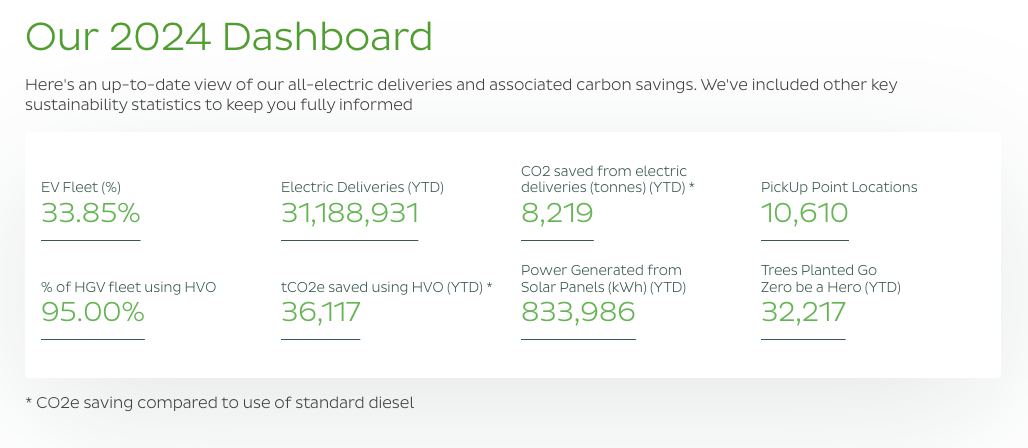
4) Pick Up Points & Drop Offs
Pick up and drop off (PUDO) points consist of networks of convenient locations for customers to collect their orders, reducing the environmental impact of last-mile deliveries.
In the UK alone, there are over 43,000 pick up and drop off points, and adoption is only growing as attitudes shift. While home delivery may still be king for some customers, studies show that the majority of consumers are open to alternative options – especially if they offer added flexibility and convenience.
-
A report in Belgium showed the majority of consumers preferred deliveries at home or the workplace. It showed 72.2% of consumers used PUDOs (pick up drop off) points because they missed a delivery at home
-
Compared to just 24.4% of consumers who actually preferred to order online and collect at a PUDO.
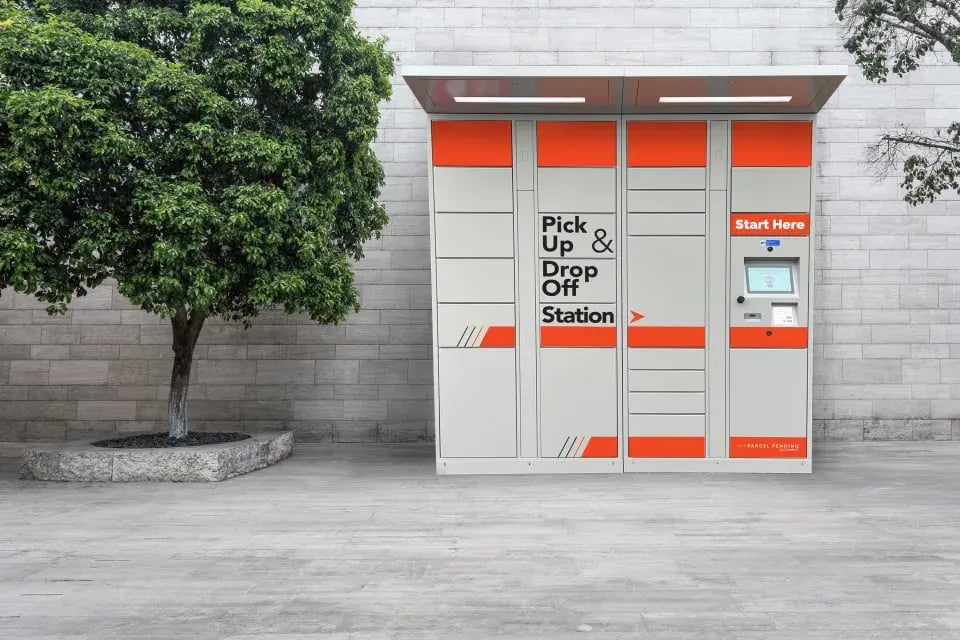
The key is to make sure your pick up points are strategically located and easy to use. When customers can seamlessly integrate your brand into their daily routines, that's when you’ll begin to convince them that PUDOs are a viable alternative.
But we’ve spotted a great opportunity to further incentivise the use of PUDOs. Rewarding customers who used them with extra incentives and benefits. That’s where the real magic happens. Suddenly, you're not just offering a convenient option if they miss a home delivery, you’re actively encouraging it.
5) Sustainability Training
Of course, sustainability isn't just about what happens outside your business – it's also about what happens within your walls. Educating your employees on eco-friendly practices and empowering them to champion your sustainability efforts, is not just doing the right thing – it’s also creating a powerful ripple effect that extends to your customers.
Salesforce conducted research on the Sustainability Talent Gap and found 8 in 10 global workers want to improve workplace sustainability.
Remember, your employees are customers too. When they feel proud to work for a company that values sustainability, that passion and purpose shines through in every customer interaction. It's the kind of authentic advocacy that money can't buy.
Back to Contents
Challenges of Sustainability
Eco-friendly strategies will come with their fair share of challenges. But here's the thing – those challenges are also opportunities to differentiate your brand and adjust to a new world.
Addressing Concerns About Product Quality
One of the biggest hurdles many businesses face when going green is the perception that sustainable products are somehow inferior in quality. Customers may worry that eco-friendly alternatives won't perform as well or last as long as their conventional counterparts.
But the truth is, sustainable products have come a long way in recent years. With advances in technology and materials science, it's now possible to create products that are both environmentally friendly and high-performing. The key is to educate your customers about the quality and durability of your sustainable offerings.
That might mean investing in product demos or customer testimonials. Another way to proactively address concerns about product quality is to offer a free sample alongside the product the customer purchased.
Ensuring Authentic Sustainability Claims and Avoiding Greenwashing
Of course, trust is a two-way street. And in the age of heightened consumer scrutiny, it's more important than ever to ensure that your sustainability claims are authentic and transparent.
In fact, it's all the more important for self-titled sustainable brands to demonstrate true eco-friendly practices. As conveying inaccurate ESG (environmental, social and governance) frameworks in brand messaging has unsurprisingly made consumers more cynical. Fabricating or exaggerating sustainability policies is so commonplace now there's even a word for it; greenwashing.
-
A survey by Google Cloud found that 58% of executives exaggerated their sustainability efforts when asked about them.
-
In the same survey by Google, 65% of businesses across various industries agreed that they didn't know how to implement sustainability efforts which had a positive environmental impact.
-
The negative fallout resulted in 9 in 10 consumers disbelieving brands who claim they're sustainable.
Lack of belief in brands walks hand in hand with low consumer trust. Nurturing an emotional connection without trust is next to impossible. And without an emotional connection, building loyalty is challenging. Therefore it's important for brands to make sure outward claims reflect internal culture and governance. Showing sustainability policies or certificates that prove compliance are just a couple of ways to substantiate your claims as a green brand.
Balancing Sustainability Goals with Business Objectives and Customer Expectations
Perhaps the biggest challenge of all when it comes to implementing sustainable strategies is finding the right balance between your environmental goals, your business objectives, and your customers' expectations.
On one hand, you have a responsibility to minimise your environmental impact and drive positive change in your industry. On the other hand, you also have a responsibility to your shareholders, your employees, and your bottom line.
And then there are your customers – the ones who ultimately decide whether your sustainability efforts are worth their loyalty and their hard-earned money. How do you meet their expectations for convenience, value, and quality while also staying true to your eco-friendly values?
The key lies in implementing customer loyalty programmes that incentivise green behaviours from customers, promote a sustainable culture both inside and outside of the company, and avoid incurring extra costs that might waver confidence among stakeholders.
Back to Contents
Strategies for Changing Customers' Minds and Behaviours
Changing customers' minds and behaviours around sustainability can be a real challenge in itself. But by applying some of the strategies below, you will be in a much better position to craft a compelling reason as to why ambivalent consumers should subscribe to the green movement.
Educating Customers on Sustainable Products and Practices
One of the most powerful tools in your arsenal when it comes to shifting customer mindsets is education. When customers understand the real, tangible benefits of sustainable products and practices, they begin to entertain the notion of a shared purpose. Tangible benefits in the form of incentive on the other hand, lead to motivation.
Education might mean creating content that highlights the environmental impact of different lifestyle choices, or showcasing the ways in which your sustainable products can help customers live healthier, more fulfilling lives. It could even mean partnering with influencers or experts in the sustainability space to lend credibility and authority to your message.
The key is to make sustainability feel accessible, achievable, and desirable for your customers. Aim to break down complex issues into simple, actionable steps and don’t forget to celebrate the positive impact of eco-friendly choices. You can help customers feel empowered and inspired to make a difference simply by rewarding them for sustainable behaviours.
Leveraging Brand Purpose and Values to Build Trust and Credibility
Of course, education alone isn't enough to change hearts and minds. To truly connect with your customers on a deep, emotional level, you need to leverage the power of your brand's purpose and values.
We’ve already touched on the increasing scepticism of consumers. Especially around corporate claims and promises, which makes authenticity and transparency ever more important. So, how do you clearly articulate your brand's mission and values?
Share stories about your company's sustainability journey, including both your successes and your challenges. It could mean partnering environmentally conscious brands or advocacy groups that align with your values, or investing in sustainable infrastructure and practices that go beyond surface-level claims.
Creating Engaging Customer Experiences That Promote Eco-Friendly Choices
Another key strategy for changing customers' minds and behaviours around sustainability is to create engaging, immersive experiences that bring your eco-friendly message to life.
Create interactive displays or pop-up shops that showcase your sustainable products in action, or hosting events and workshops that educate customers about sustainability in a fun, hands-on way. With a loyalty programme in place, you could gamify your sustainability initiatives through challenges, rewards, and other incentives that encourage customers to make eco-friendly choices.
Make sustainability feel like an exciting, rewarding part of your customers' lives – not just a chore or a sacrifice. Experiences that are both educational and entertaining let customers see the joy and satisfaction that comes from living a more sustainable lifestyle.
Harnessing the Power of Purpose-Driven Marketing and Green Messaging
Finally, to truly drive change and build a loyal, engaged customer base around sustainability, you need to harness the power of purpose-driven marketing and green messaging.
That means infusing your marketing campaigns, social media presence, and customer communications with a clear, compelling message about your brand's commitment to sustainability. It means highlighting the ways in which your products and practices are making a positive impact on the planet, and celebrating the customers who are joining you on your mission.
Ultimately, the key to changing customers' minds and behaviours around sustainability is to lead with purpose, create meaningful experiences, and communicate with authenticity and transparency.
Back to Contents
Examples of Brands Operating Sustainable Loyalty Programmes
While the cost-of-living crisis has undoubtedly made it harder for some companies to prioritise eco-friendliness, I firmly believe that those who stay the course will reap the benefits in the long run.
In fact, I'd go so far as to say that now is the perfect time to double down on your sustainability efforts and outpace your competitors. And one of the most powerful ways to do that is by implementing a green loyalty programme that incentivises and rewards customers for making eco-friendly choices.
So, who's leading the charge when it comes to sustainable loyalty? Let's take a look at a few standout examples.
Now, I know what you might be thinking – an airline talking about sustainability? It's easy to be sceptical. But hear me out, because Etihad is doing some seriously impressive things with their loyalty programme, Etihad Guest.
First of all, the programme boasts an incredible roster of partner brands, from luxury names like Montblanc and Joyalukkas to premium lifestyle brands like Live Free and ASMALLWORLD. But what really sets Etihad Guest apart is its commitment to sustainability.
Members can earn Tier Miles by offsetting emissions from everyday activities like driving, cooking, and cooling their homes. They can also donate their miles to green causes, and get rewarded for eco-friendly behaviours like bringing less baggage on flights or going digital with their membership card.
And the impact of these initiatives is no joke. Etihad is already incorporating sustainable fuel options, using more electric vehicles, and working with other airlines to promote cleaner skies. They've set a goal of reaching net zero emissions by 2050, and halving their 2019 emissions by 2035.
 Source: Etihad Guest - Conscious Choices
Source: Etihad Guest - Conscious Choices
Speaking of industries with a less-than-stellar reputation for sustainability, let's talk about fashion. The textile industry is notorious for its waste and emissions, but H&M is trying to change that with its garment collection programme.
Basically, H&M offers £5.00 vouchers to customers who bring in their old clothes and textiles for recycling. And we're not talking small amounts here – since 2020, they've collected over 18,800 tonnes of unwanted clothing, equivalent to a staggering 94 million T-shirts!
But H&M isn't stopping there. They're also experimenting with circular design, a production process that recycles clothing at scale into new, renewable materials. And in Stockholm, they've even launched a Conscious Exclusive collection that allows shoppers to rent clothing for special occasions instead of buying new.
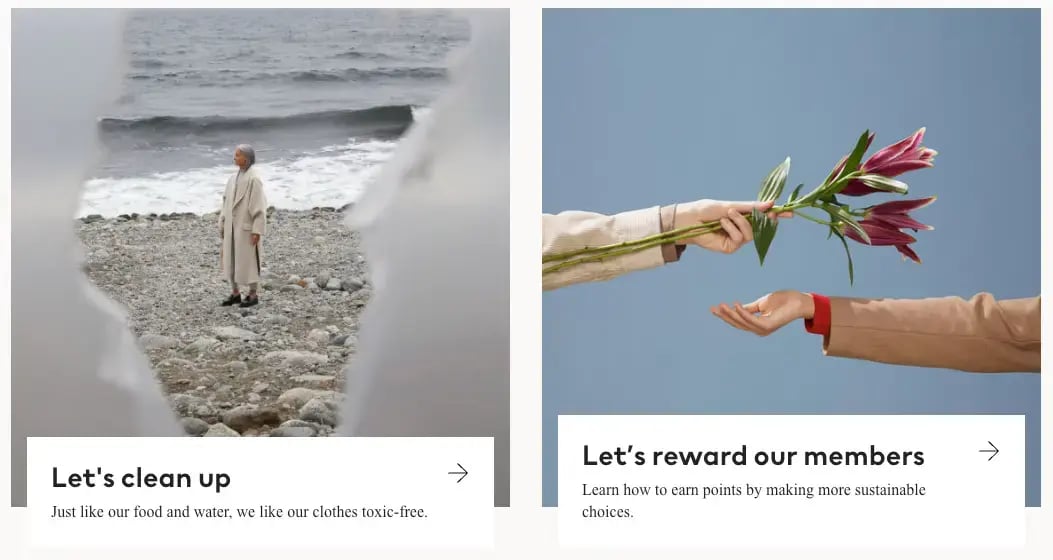
Source: Sustainability at H&M
Finally, let's talk about a company that's taking sustainable loyalty to the next level by gamifying eco-friendly behaviour. Liight, a Spanish startup founded in 2017, has created an app that rewards employees for making sustainable choices in their daily lives.
The app includes discounts with partner brands for things like sustainable fashion, tech, and leisure, as well as challenges and activities that promote a healthy, eco-friendly lifestyle. But what really sets Liight apart is its sophisticated tracking and measurement tools.
By analysing data from users' daily activities – things like their transportation habits, recycling practices, and energy usage – Liight is able to calculate the tangible impact of their sustainability efforts. Users can see exactly how much they're reducing their carbon footprint and waste, and earn rewards for hitting milestones along the way.
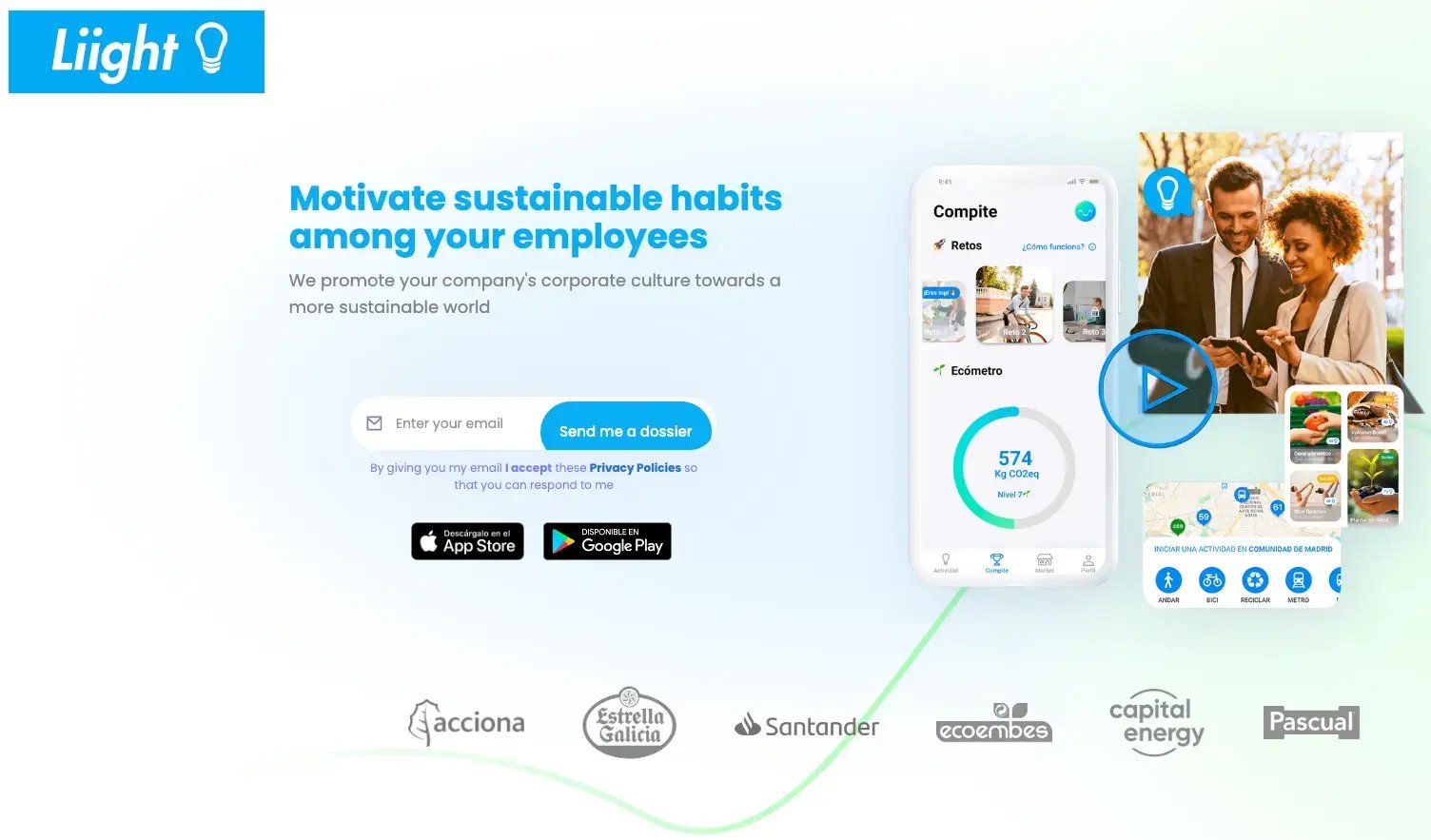
Source: Liight
Back to Contents
Don’t Waste Your Potential for Long term Sustainable Customer Loyalty
As we've seen throughout this article, sustainability is absolutely relevant in every industry. Whether it's relevant to your business, however, is entirely up to you. I f you choose to ignore the power of sustainability, you're missing out on an incredible opportunity to build long-lasting loyalty and make a positive impact on the world.
By aligning your brand values with sustainability, you're not just tapping into a trend – you're creating a powerful competitive advantage. Customers today are looking for brands that share their values and are making a real difference in the world. When you demonstrate an authentic commitment to social responsibility and environmental stewardship, you're building trust, credibility, and emotional connections that go beyond just transactions.
And one of the most powerful ways to showcase that commitment is by connecting the dots between sustainability and customer loyalty with a rewards programme. Rewarding customers for making eco-friendly choices, not only drives retention and advocacy – it creates a community of like-minded individuals who are passionate about your brand and your mission.
Embrace sustainability as a core part of your brand strategy, and use the power of loyalty to create a brighter, more sustainable future for all. Your customers – and the world – will thank you for it.
See where sustainability ranks in loyalty priorities in our Loyalty Uncovered 2025 Report:
Sustainability drives customer loyalty by aligning with consumers' values and demonstrating a genuine commitment to eco-friendly practices. Brands that embrace sustainability can build trust, credibility, and emotional connections with customers, leading to increased retention and advocacy.
Embracing sustainability can enhance brand purpose, improve customer lifetime value, attract new customers in the eco-conscious consumer market, and reduce environmental impact. Sustainable practices can also drive innovation and differentiate a brand from competitors.
Businesses can integrate sustainability into loyalty programmes through green deliveries, pick up points & drop offs, sustainability training for employees, communicating the brand's mission, and differentiating rewards with sustainable incentives like eco-friendly products or experiences.
Common challenges include addressing concerns about product quality, ensuring authentic sustainability claims and avoiding greenwashing, and balancing sustainability goals with business objectives and customer expectations. Overcoming these challenges requires transparency, education, and strategic planning.
Effective strategies include educating customers about sustainable products and practices, leveraging brand purpose and values to build trust and credibility, creating engaging customer experiences that promote eco-friendly choices, and harnessing the power of purpose-driven marketing and green messaging.
Loyalty programmes can incentivise and reward customers for making eco-friendly choices, such as choosing sustainable products or participating in recycling initiatives. By integrating sustainability into rewards and benefits, businesses can encourage long term sustainable behaviour change.
To ensure authenticity, businesses should be transparent about their sustainability journey, back up claims with measurable data, and integrate sustainable practices into their operations and culture. Partnering with environmental organisations and seeking third-party certifications can also build credibility.
Etihad Airways' Etihad Guest programme rewards members for offsetting emissions and eco-friendly behaviours. H&M's garment collection programme offers vouchers for recycling clothes, and Liight's app gamifies sustainable choices for employees, offering rewards for reducing environmental impact.
Finding the sweet spot where sustainability, customer expectations, and business objectives intersect requires strategic planning and innovation. This may involve partnering with sustainable suppliers, or finding creative ways to incentivise sustainable behaviours through loyalty programmes.
Prioritising sustainability in loyalty strategies is crucial for building long term customer relationships, as consumers increasingly seek out brands that align with their values. With an authentic commitment to sustainability, businesses can create a powerful competitive advantage and drive retention and advocacy.


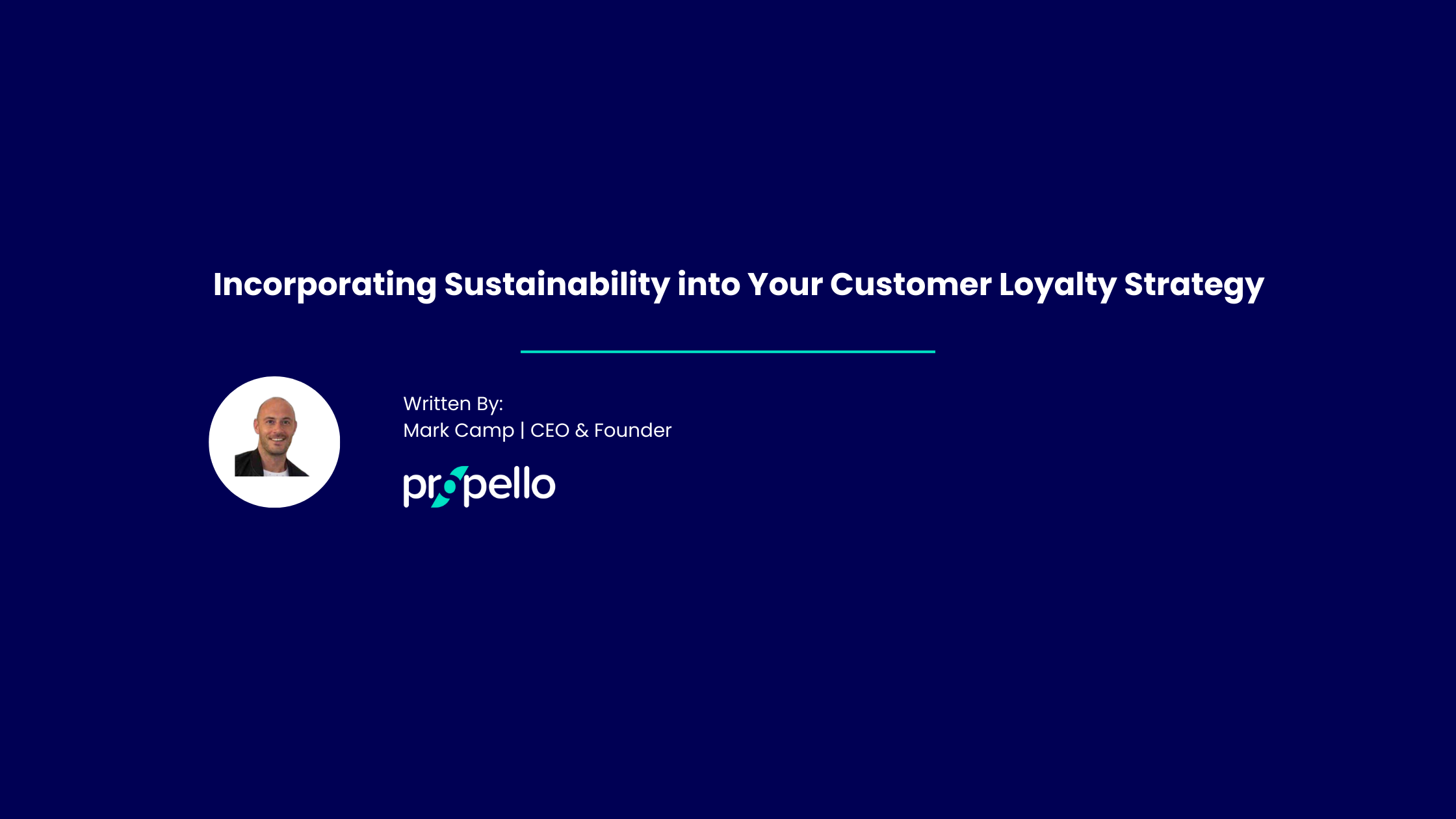
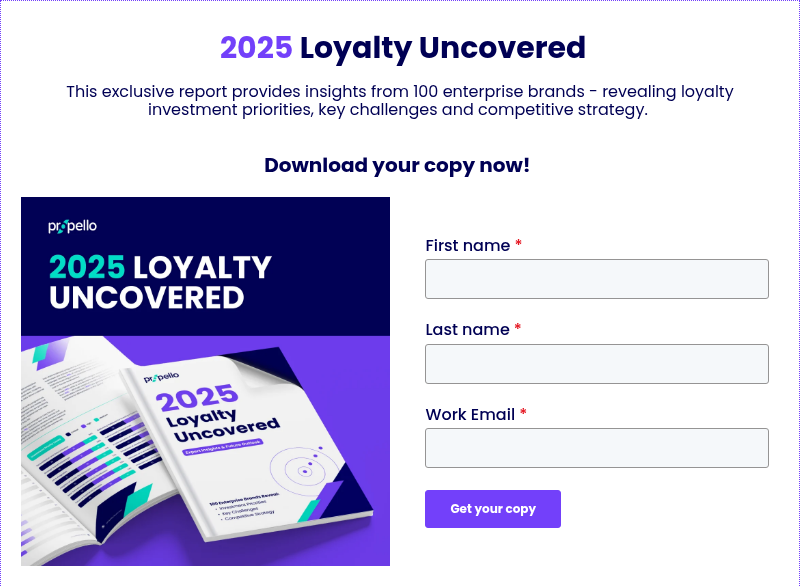
.webp?width=1573&height=749&name=SustainableLoyaltyProgramme%20(1).webp)







.png)